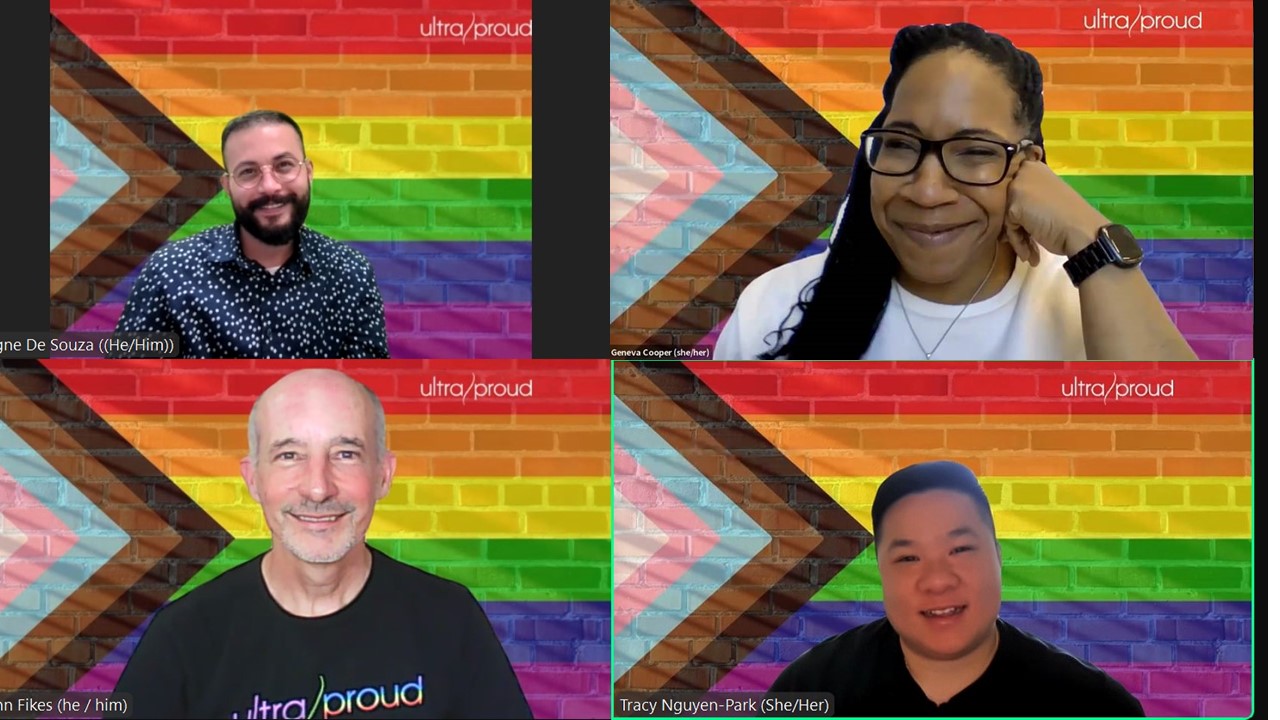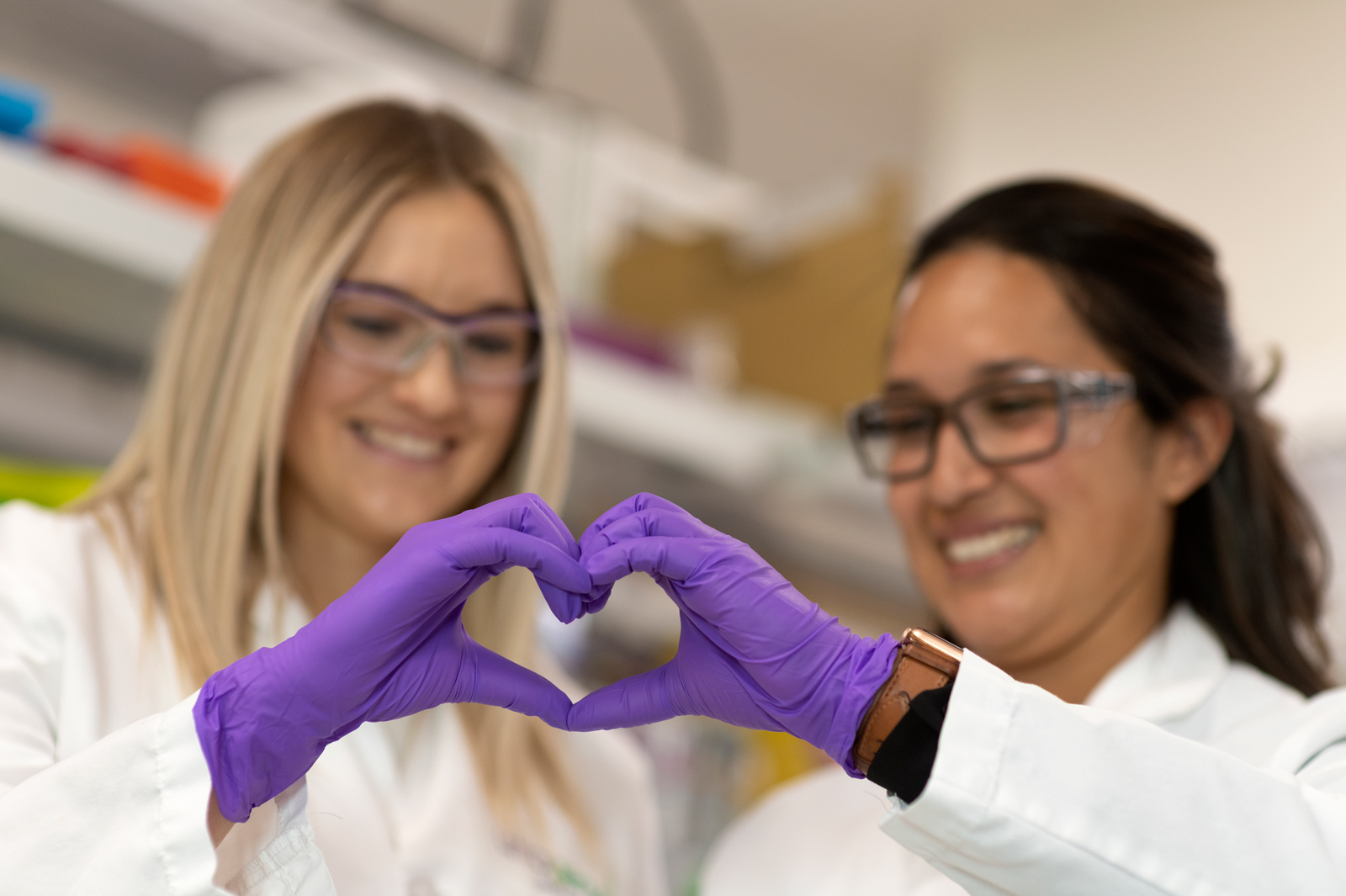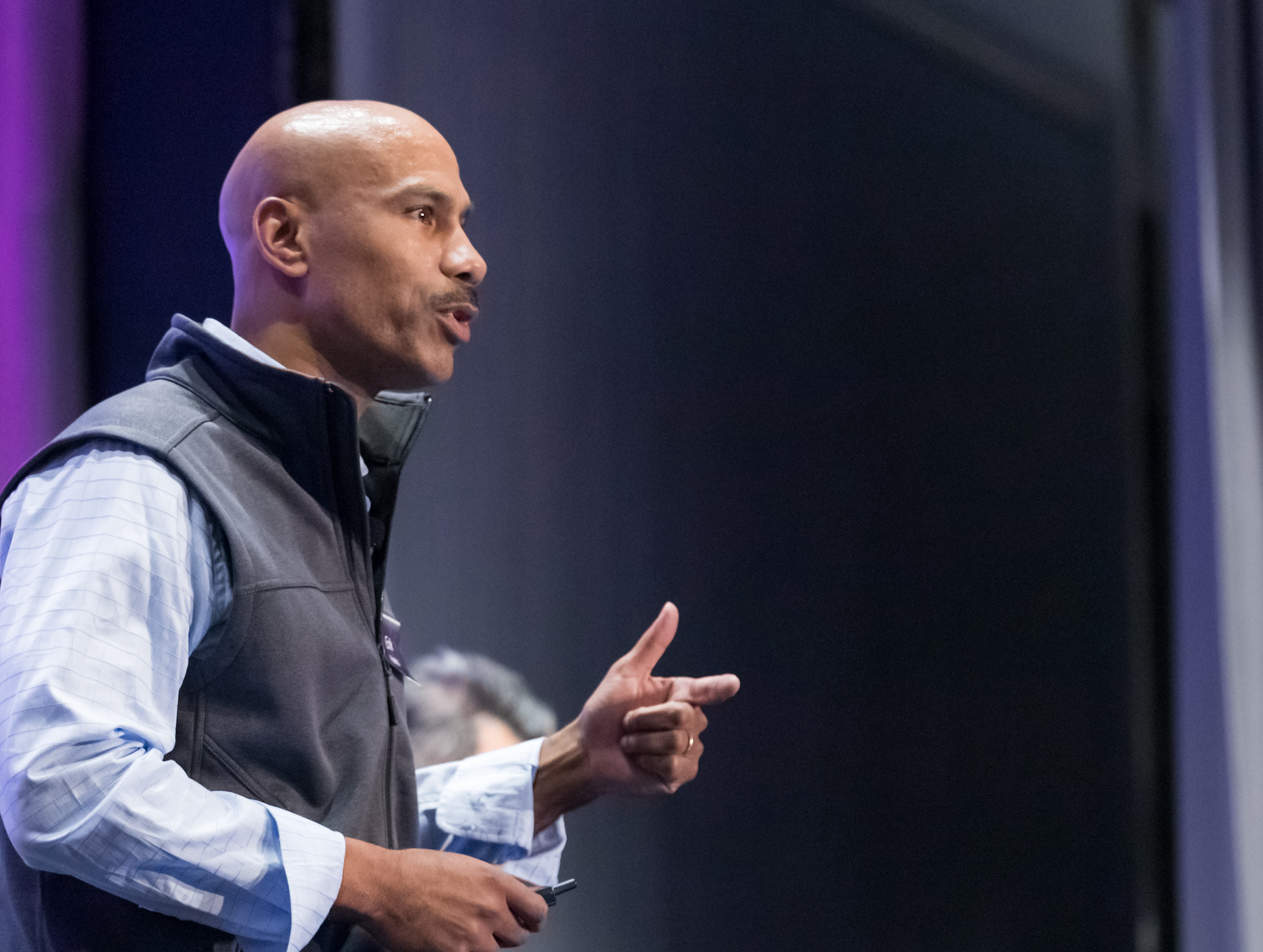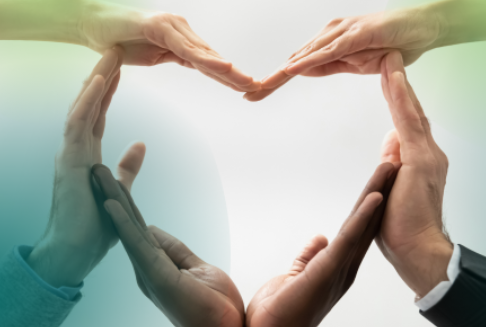At Ultragenyx, our Employee Resource Groups (ERGs) are voluntary, employee-led groups that have a distinct impact on our company culture. Our ERGs were created to build inclusive spaces for individuals who share common aspects of identity. We currently have seven ERGs, and I serve as the lead of UltraProud, which works to promote a culture of equality and belonging to enable LGBTQIA+ employees to thrive in their careers and lives and achieve greater impact in the world.
During Pride Month, UltraProud members, Tracy Nguyen-Park (she/her), a member of our information technology(IT) team who identifies as queer, Geneva Cooper (she/her), a member of our quality systems operations team who identifies as an ally, and Fagne De Souza (he/him), a member of our analytical development team who identifies as gay shared their perspectives on allyship in a panel format moderated by John Fikes (he/him), a member of our program leadership team and executive sponsor of UltraProud who identifies as an ally.
It was a robust conversation where employees from across the company were able to ask questions related to allyship in the workplace and beyond. While there were many insights, experiences and learnings shared, three key themes permeated the discussion:
Allyship is about action.
When asked about what allyship means to them, “action” was a consistent thread.
“To me, that means actions and behaviors that support and amplify the queer community. It means being a part of the support system actively, not passively,” stated Tracy.
Geneva added, “For me, allyship is really about lending my voice, my influence, my impact to those that are in need in some way… Allyship involves actively and continuously supporting and advocating for members of the LGBTQIA+ community.”
She also pointed out that allyship extends beyond the LGBTQIA+ community too, amplifying the voices of all marginalized individuals while striving for equality.
And little actions matter. John noted, it can be as simple as wearing an UltraProud T-shirt through an airport in a conservative state or environment where you know not everyone is supportive of the community.
Little actions can lead to big changes.
Continuous learning is required, and missteps will happen.
Learning is an important part of allyship, and missteps are an important part of learning. Allyship can be complicated and requires ongoing dialogue, empathy and self-awareness from both allies and members of the community.
“We weren’t born with all this knowledge. You’ve got to accumulate it, and getting comfortable with that involves some missteps. This was a barrier for me,” noted John.
Tracy added, “We cannot expect perfection from everyone, even ourselves. So as long as the questions are posed in a respectful manner and come from a good place in your heart, it doesn’t hurt to ask. And I think that shows allyship, right, the intentions and also kindness.”
As Fagne pointed out, “Allyship means that everybody’s still learning.”
The group also discussed that learning and advocating is a part of the responsibility of being an ally. Allies should proactively seek out resources and educate themselves without overly relying on members of the community for guidance.
“Driving home the fact that there is a level of sensitivity, there is a level of respect and education that you have to just come to the table with,” emphasized Geneva.
Positive intent and safe spaces can have a profound impact.
As an ally, the phrasing and intent behind questions is critical.
One example discussed was if there is ever any uncertainty around an individual’s pronouns, asking, “may, I ask your pronouns?”
Conversely, Tracy shared that when someone does do something that is offensive to her, she tries to approach them respectfully as well. Instead of saying, “that was insensitive of you” she says, “I’d like to talk to you about this comment and how it made me feel.”
Fagne, noted that kindness is necessary in all situations, “We have to remember that everyone next to us is human.”
Creating safe spaces for sharing and learning can also help create stronger allies.
“The biggest thing I’m always worried about is getting it wrong. My heart is always right, but my words aren’t. I have found remarkable support in the UltraProud community through the office hours and the monthly meetings, and I always do my best to come prepared so that I’m not relying on the community to educate me,” explained Geneva.
Throughout the discussion, the panelist reinforced how important it is to show up with humility, curiosity, grace and respect for others and yourself. It is with this approach that you can nurture open dialogue and safe spaces. In one of her final remarks, Tracy shared “Every time you choose to be passive and keep the peace, think about what type of environment you’re fostering and what type of perspectives get to thrive.”
By providing us the opportunity to hear from colleagues who are part of the LGBTQIA+ community, it helps us reinforce our company commitment to hearing diverse perspectives, and the importance of employees being able to live authentically and do their best work.
For more information about our ERGs at Ultragenyx, visit: https://live.ultragenyx.com/join-our-team/culture/








